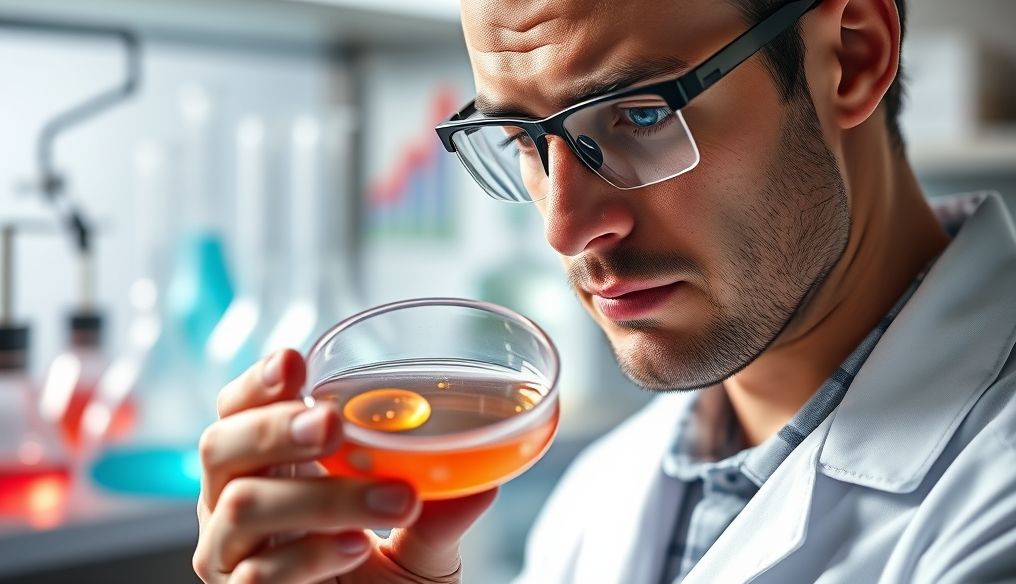Can Food Allergies Really Be Cured? What are the Latest Treatments?
Food allergies are an abnormal immune response to a specific protein in food. Symptoms can range from mild, like itching and rash, to severe, like difficulty breathing and anaphylaxis. But is it a permanent condition?
What are Food Allergies and What Causes Them?
Food allergies occur when the immune system mistakenly identifies a harmless food protein as a threat. This leads the body to release chemicals like histamine, causing the well-known symptoms. The exact causes of food allergies aren't fully understood, but genetic and environmental factors play a role.
- Genetic Factors: If a parent has a food allergy, the child is more likely to develop one.
- Environmental Factors: Early exposure to certain foods, or lack thereof, may influence the development of allergies.
- Vitamin D Deficiency: Some studies suggest that vitamin D deficiency may increase the risk of developing food allergies.
The Most Common Food Allergens
Eight major foods are responsible for 90% of food allergy reactions:
- Milk
- Eggs
- Peanuts
- Tree Nuts (e.g., almonds, walnuts, cashews)
- Fish
- Shellfish
- Wheat
- Soy
Symptoms of Food Allergies
Symptoms of food allergies vary from person to person and can range from mild to severe. Common symptoms include:
- Skin rash and itching
- Nausea, vomiting, and diarrhea
- Abdominal pain
- Swelling of the face, tongue, and throat
- Difficulty breathing and wheezing
- Dizziness and fainting
In severe cases, anaphylaxis can occur, a life-threatening allergic reaction that requires immediate treatment with an epinephrine (adrenaline) auto-injector.
Diagnosing Food Allergies
Diagnosing food allergies involves several factors:
- Medical History: The doctor will ask about symptoms and suspected trigger foods.
- Skin Prick Test: A small amount of potential allergens is placed on the skin, and the skin is then pricked with a small needle. A red bump indicates a possible allergy.
- Blood Test: A blood test measures the amount of allergen-specific antibodies (IgE) in the blood.
- Oral Food Challenge: The patient is given small, increasing amounts of the suspected food under medical supervision to monitor for a reaction.
Current Treatments for Food Allergies
Currently, there is no cure for food allergies. The primary treatment is avoidance of allergenic foods. However, other treatments are available to help manage symptoms and reduce the risk of severe reactions:
- Epinephrine (Adrenaline) Auto-Injector: People at risk of anaphylaxis should carry an epinephrine auto-injector and use it in case of a severe allergic reaction.
- Antihistamines: Antihistamines can be used to relieve mild symptoms like itching and rash.
- Oral Immunotherapy (OIT): OIT involves giving the patient small, increasing amounts of the allergenic food over a period of time to desensitize them to it.
Can Food Allergies Be Cured? The Latest Research
While there is no definitive cure for food allergies yet, promising research is showing encouraging results:
- Oral Immunotherapy (OIT): Studies have shown that OIT can help reduce people's sensitivity to allergenic foods, and in some cases, may lead to full tolerance of the food. However, OIT is not suitable for everyone and carries risks, such as allergic reactions.
- Epicutaneous Immunotherapy (EPIT): EPIT involves applying a patch containing a small amount of the allergen to the skin. Studies have shown that this treatment can help reduce people's sensitivity to peanuts.
- Biologic Therapy: Biologic drugs are being developed that target specific pathways in the immune system to help reduce allergic reactions.
- Microbiome Modulation: Research suggests that the microbiome (the collection of microorganisms living in the gut) may play a role in the development of food allergies. Some studies aim to modulate the microbiome using probiotics or fecal transplants to help prevent or treat food allergies.
Tips for Managing Food Allergies
If you have a food allergy, here are some tips for managing it:
- Read Food Labels Carefully: Always read food labels carefully before consuming to check for any allergens.
- Inform Others About Your Allergy: Tell friends, family, teachers, and caregivers about your allergy so they can help you avoid allergenic foods.
- Carry an Epinephrine Auto-Injector at All Times: If you are at risk of anaphylaxis, make sure to carry an epinephrine auto-injector with you at all times and know how to use it.
- Consult Your Doctor Regularly: Consult your doctor regularly to discuss treatment options and allergy management.
- Learn Safe Cooking Practices: Learn how to cook safe meals at home to avoid cross-contamination.
Conclusion
While there is no definitive cure for food allergies yet, there is hope for the future. Research is ongoing to develop new treatments that can help reduce people's sensitivity to allergenic foods and even cure them completely. In the meantime, the best way to manage food allergies is to avoid allergenic foods and follow your doctor's advice.
Disclaimer: This article is for informational purposes only and should not be considered a substitute for professional medical advice. Always consult with your doctor before making any decisions related to your health.




